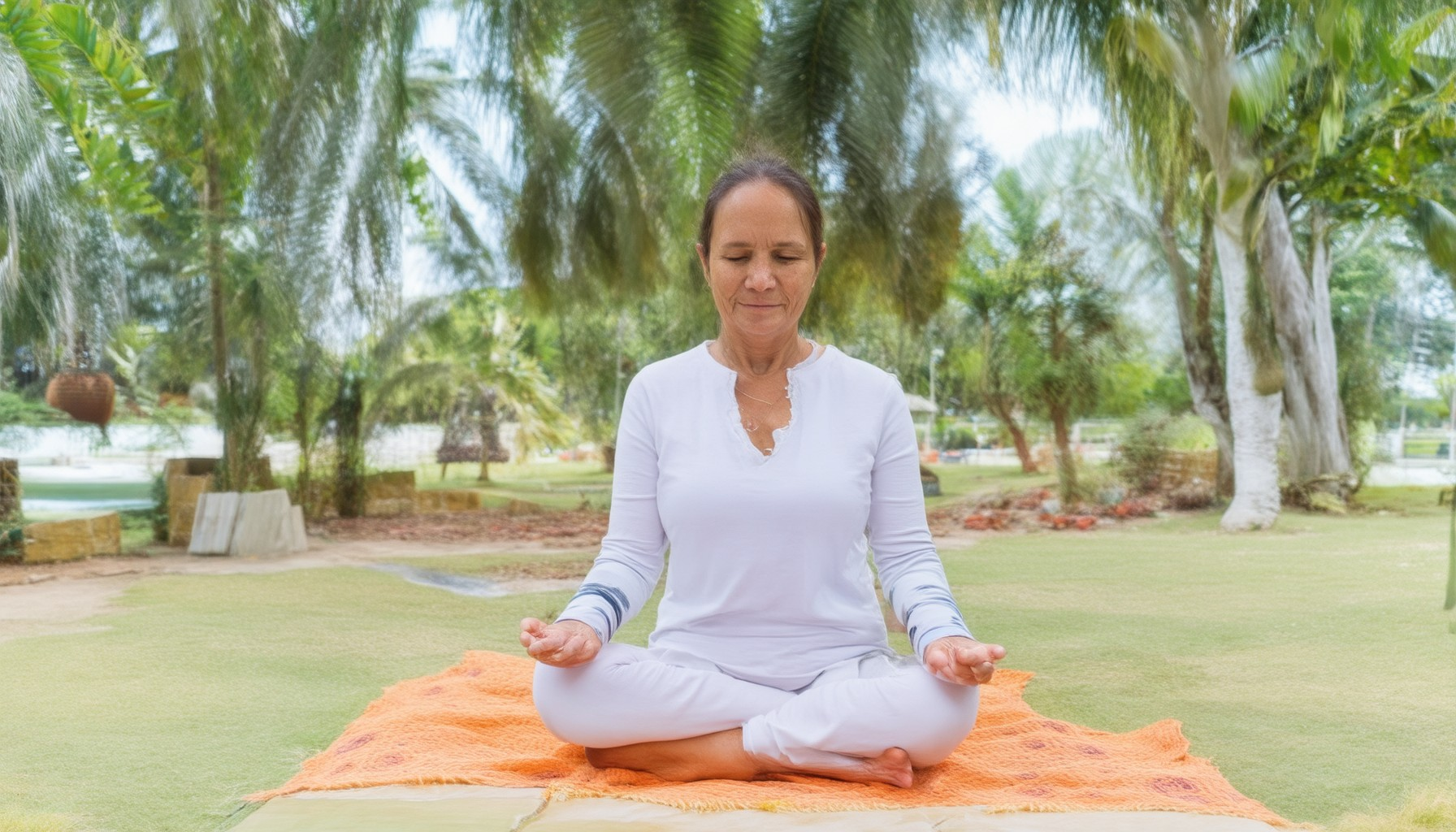In today’s fast-paced world, maintaining mental clarity and emotional balance can feel like an uphill battle. With countless responsibilities vying for our attention, many individuals struggle to carve out time for self-care. However, the practice of mindful self-care offers a transformative approach to managing stress, fostering inner peace, and enhancing overall well-being. By cultivating awareness and intentionality in everyday actions, mindful self-care becomes a powerful tool for reconnecting with oneself and finding harmony amidst life’s chaos. This article delves into actionable strategies and insights designed to help you embrace a more balanced and fulfilling lifestyle.
Key Takeaways
- Practice Guided Meditation for reduced anxiety and stress, enhancing mental clarity.
- Engage in Regular Exercise to boost mood and energy, linking to workout plans for tailored routines.
- Prioritize Nutrient-Rich Diets for cognitive health and overall well-being, consulting a registered dietitian for personalized advice.
- Cultivate Emotional Awareness through journaling to process emotions effectively.
- Build Strong Social Connections for support and a fulfilling life, exploring relationship communication strategies.
- Implement Digital Detoxes to reduce stress and improve focus, emphasizing the need to unplug regularly.
- Consult Therapists for deep emotional support and guidance in overcoming challenges.
- Start a Gratitude Journal daily to foster positivity and reduce negativity.
- Learn to Set Firm Boundaries to protect your energy and maintain emotional balance.
- Incorporate Exercise into your routine for natural mood enhancement.
- Practice Mindfulness techniques to stay grounded and reduce anxiety.
- Surround Yourself with Uplifting Friends to create a supportive environment.
- Reduce Blue Light Exposure before bed to improve sleep quality.
- Schedule Regular Self-Care Activities to prioritize your well-being.
- Spend Time Outdoors to experience nature’s calming effects.
- Say No to Prevent Burnout and avoid overcommitment.
- Engage in Creative Activities to process emotions and find joy.
- Explore New Experiences to keep your mind active and curious.
How Can I Practice Mindful Self-Care?
Mindful self-care is about being intentional and present in your daily life. Here are practical steps to incorporate it:
- Daily Habits:
- Set intentions each morning.
- Prioritize self-care activities like meditation or a walk.
- Establish healthy boundaries with others.
- Moments of Pause:
- Practice mindfulness for just 5 minutes a day.
- Engage in deep breathing exercises.
- Journal your thoughts before bed.
- Relationships:
- Practice active listening.
- Communicate openly about needs.
- Spend quality time alone or with loved ones.
- Physical Health:
- Stay hydrated and eat nourishing meals.
- Get regular exercise.
- Aim for 7 hours of sleep.
- Reflection:
- End your day with gratitude.
- Review what went well and what could improve.
- Seek professional support if needed.
For more insights, explore our mindfulness guide and discover how to create a balanced lifestyle. Remember, self-care isn’t selfish—it’s essential for overall well-being.
Best Ways to Incorporate Mindfulness Into Your Daily Routine
Incorporating mindfulness into your daily routine can significantly enhance your overall well-being. Here are some effective strategies to get started:
- Meditation Practice : Dedicate a few minutes each day to meditate. Focus on your breath and let thoughts pass without judgment. Apps like Chris and One’s Meditation Guide can assist you in getting started.
- Deep Breathing Exercises : Take regular pauses throughout the day to engage in deep breathing. This helps reduce stress and clears your mind. Learn more about effective breathing techniques on our site.
- Gratitude Journaling : Spend a few moments each evening writing down three things you’re grateful for. This practice fosters positivity and helps you appreciate the present moment. Discover how to journal effectively for mindfulness .
- Mindful Eating : Pay attention to your meals and savor each bite. Avoid distractions like phones to fully engage in the experience. Explore mindful eating techniques to improve your relationship with food.
- Body Scan Practice : Spend a minute or two scanning your body from head to toe. This helps you connect with your physical presence and promote relaxation. Find guided body scan exercises online.
- Setting Intentions : Begin your day by setting a positive intention or goal. This mindset helps you stay focused and motivated. Learn how to set intentions effectively for better outcomes.
By integrating these mindfulness practices into your daily routine, you can cultivate greater self-awareness, reduce stress, and enhance your overall well-being. Remember, consistency is key to reaping the benefits of mindfulness.
Steps to Practice Mindful Self-Care
To embark on a journey of mindful self-care, consider implementing the following structured approach:
- Listen to Your Body
- Set Healthy Boundaries
- Practice Mindfulness Daily
- Stay Physically Active
- Eat Nutritious Meals
- Prioritize Sleep
- Connect with Others
- Express Gratitude
- Learn to Say No
- Limit Screen Time
- Be Kind to Yourself
– Pay attention to physical and emotional cues. Rest when fatigued and seek help when stressed to avoid burnout.
– Evaluate commitments and learn to say no to avoid overwhelm. Delegate tasks when possible to manage responsibilities effectively.
– Engage in guided meditation sessions using apps like Headspace or Calm . Be present during activities like eating or walking to enhance awareness.
– Start with simple routines like short walks or home yoga sessions. Consistency is key to reaping benefits like reduced stress and improved mood.
– Plan meals or use meal prep services to avoid unhealthy choices. Incorporate fruits, veggies, lean proteins, and whole grains for sustained energy and mental clarity.
– Create a bedtime routine, limiting screen time before bed and avoiding caffeine late in the day. Aim for 7-9 hours nightly for optimal health.
– Reach out for support and engage in volunteer work or groups to foster community and purpose.
– Keep a journal to note daily gratitudes, shifting your mindset towards positivity despite challenges.
– Prioritize tasks based on urgency and importance to communicate effectively and avoid overcommitting.
– Set device limits and establish screen-free zones to reduce digital stress and enhance focus.
– Embrace self-care as a journey with patience. Celebrate small achievements to stay motivated and practice compassion during setbacks.
By focusing on these areas incrementally, you can cultivate a balanced and fulfilling lifestyle. Consider professional guidance for personalized strategies and tools to enhance your self-care routine.
Effective Mindful Self-Care Tips for Improving Mental and Emotional Well-Being
Mindful self-care is essential for maintaining mental and emotional health. By incorporating mindful practices into your daily routine, you can reduce stress, enhance resilience, and foster a sense of balance. Here are some proven tips to get started:
- Meditation Practice: Dedicate a few minutes each day to meditate. Techniques like mindfulness of breath or body scans can help ground you and reduce anxiety. Explore guided meditation resources to begin your journey.
- Regular Exercise: Physical activity releases endorphins, boosting mood and energy levels. Aim for at least 30 minutes of moderate exercise most days of the week. Find workout plans tailored to your fitness level .
- Nutrition Matters: A balanced diet rich in fruits, vegetables, lean proteins, and whole grains supports brain health and overall well-being. Consider working with a registered dietitian to create a personalized plan.
- Emotional Awareness: Pay attention to your emotions and understand them without judgment. Journaling or sharing feelings with a trusted friend can help process and manage emotional challenges effectively.
- Quality Relationships: Invest time in building and nurturing relationships with loved ones. Strong social connections provide support and contribute to a fulfilling life. Learn communication strategies to strengthen these bonds.
Additionally, explore these complementary resources to further enhance your self-care routine:
- Books: Read titles like “The Power of Now” by Eckhart Tolle or “Atomic Habits” by James Clear to gain deeper insights into personal growth.
- Courses: Enroll in online courses on platforms like Udemy or Coursera to develop new skills that promote personal development.
Remember, self-care is a lifelong journey. Be patient with yourself and celebrate small victories along the way. Prioritizing your well-being ensures a more fulfilling and meaningful life.
Best Mindful Self-Care Tips
- Meditation Practice
- Start with guided meditations to ease into the practice.
- Establish a morning routine for consistent benefits.
- Journaling
- Keep a gratitude journal every day to foster positivity.
- Write down your emotions to process and release them.
- Mindfulness Exercises
- Practice the bodies scan exercise to connect with your body.
- Engage in body awareness during daily activities.
- Physical Activity
- Include regular exercise in your routine for stress relief.
- Try yoga sessions for mindfulness and physical health.
- Social Connections
- Schedule regular quality time with loved ones.
- Build a support network for emotional well-being.
- Nutrition
- Focus on healthy eating habits and nutrient-rich foods.
- Reduce consumption of addictive substances.
- Limit Overstimulation
- Implement a digital detox to reduce screen time.
- Unplug from technology periodically to recharge.
- Self-Compassion
- Use positive affirmations to boost self-esteem.
- Be kind to yourself during challenging times.
- Seeking Professional Help
- Contact a counselor or therapist for deeper support.
- Consider therapy sessions for ongoing well-being.
Effective Mindful Self-Care Tips for Improving Mental and Emotional Well-Being
- Practice Gratitude Daily: Begin your day by jotting down three things you’re grateful for. This simple habit fosters positivity and reduces negativity.
- Set Healthy Boundaries: Learn to say no to activities or people that drain your energy. Protecting your time and emotions is crucial for well-being.
- Engage in Regular Physical Activity: Exercise releases endorphins, boosting mood and reducing stress. Even a 10-minute walk outside can make a difference.
- Become Present-Minded: Mindfulness practices like meditation or deep breathing help you stay grounded, reducing anxiety and promoting relaxation.
- Surround Yourself with Positive Influences: Spend time with supportive friends or join communities that uplift you. Negative influences can hinder progress.
- Limit Screen Time: Unplug from devices before bed to reduce blue light exposure and improve sleep quality, which is vital for mental health.
- Prioritize Self-Care Routine: Schedule regular self-care activities into your week, whether it’s a relaxing bath or a leisurely hobby you enjoy.
- Seek Support When Needed: Don’t hesitate to reach out to therapy or counseling services if you’re struggling. Professional guidance can make a significant impact.
- Connect with Nature: Spend time outdoors daily, whether it’s a walk in the park or sitting under a tree. Nature has a calming effect on the mind.
- Avoid Overcommitment: Say no to taking on too much. Overcommitting can lead to burnout, affecting both mental and physical health.
- Express Your Creativity: Engage in creative activities like journaling, painting, or music. These exercises can help process emotions and bring joy.
- Stay Curious About Life: Explore new experiences and ask questions. Curiosity keeps the mind active and engaged, contributing to overall well-being.
Remember, self-care is not selfish—it’s essential for living a fulfilling life. By incorporating these mindful practices, you can cultivate a stronger sense of balance and harmony.
Explore more resources on self-improvement and mental well-being at Chris and One.









0 Comments